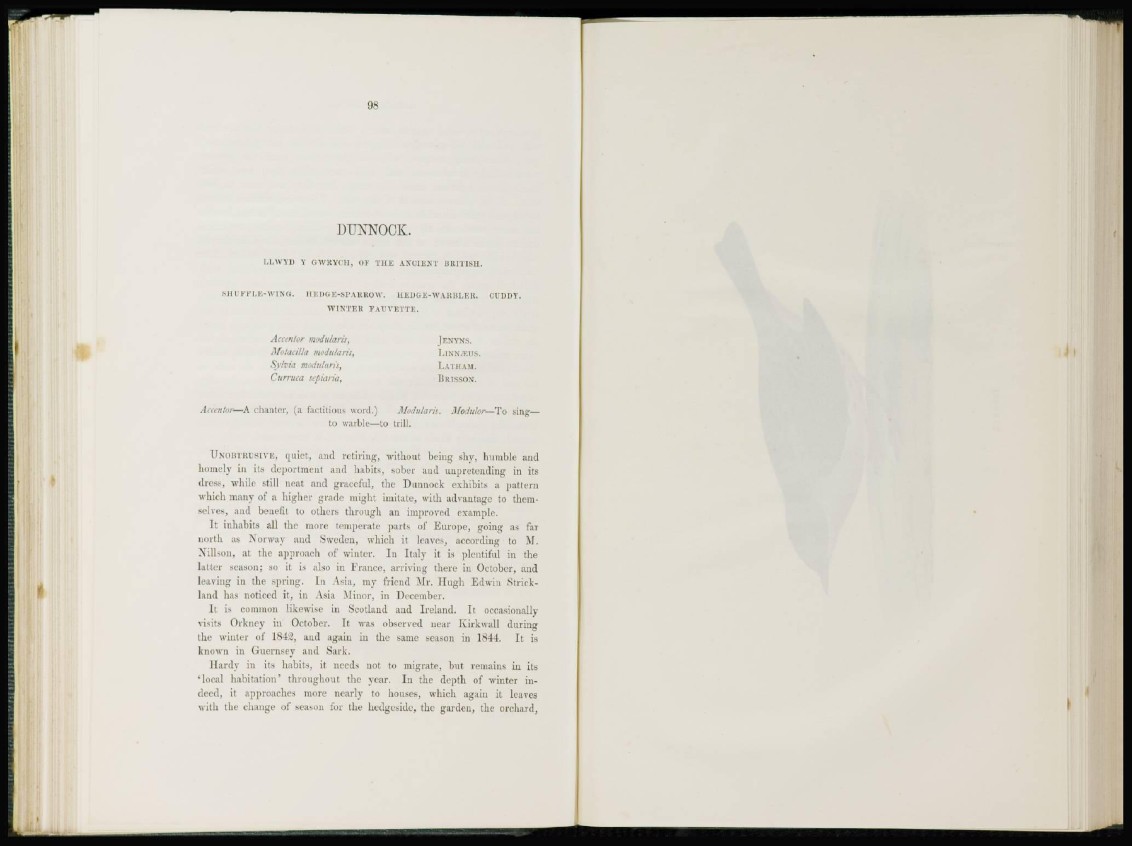
DUNNOCK.
LLWTD V GWKYCH, OF T H E ANCIENT IIKITISH.
8H1 PPLE-WIKG. HEDGE-8PAKROW. HEDGE-W \ Kill. Kit. CU D D I .
WINTER FAUVETTE.
Accentor moduiaris, JENVNS.
Motaci/la moduiaris, LINN^.US.
Sylvia moduiaris, LATHAM.
Curruca sepiaria, BRESSON.
Accentor—A chanter, (a factitious word.) Moduiaris. Modular—To sing—
to warble—to trill.
UNOBTRUSIVE, quiet, ami retiring, without being shy, humble and
homely in its deportment and habits, sober and unpretending in its
dress, while still neat and graceful, the Dunnock exhibits a pattern
which many of a higher grade might imitate, with advantage to themselves,
and benefit to others through an improved example.
It inhabits all the more temperate parts of Europe, going as far
north as Norway and Sweden, which it leaves, according to M.
Nillson, at the approach of winter. In Italy it is plentiful in the
latter season; so it is also in France, arriving there in October, and
leaving in the spring. In Asia, my friend Mr. Hugh Edwin Strickland
has noticed it, in Asia Minor, in December.
I t is common likewise iu Scotland and Ireland. It occasionally
visits Orkney in October. It was observed near Kirkwall during
the winter of 1842, and again in the same season in 1844. It is
known in Guernsey and Sark.
Hardy in its habits, it needs not to migrate, but remains in its'
• local habitation' throughout the year. In the depth of winter indeed,
it approaches more nearly to houses, which again it leaves
with the change of season for the hedgeside, the garden, the orchard,